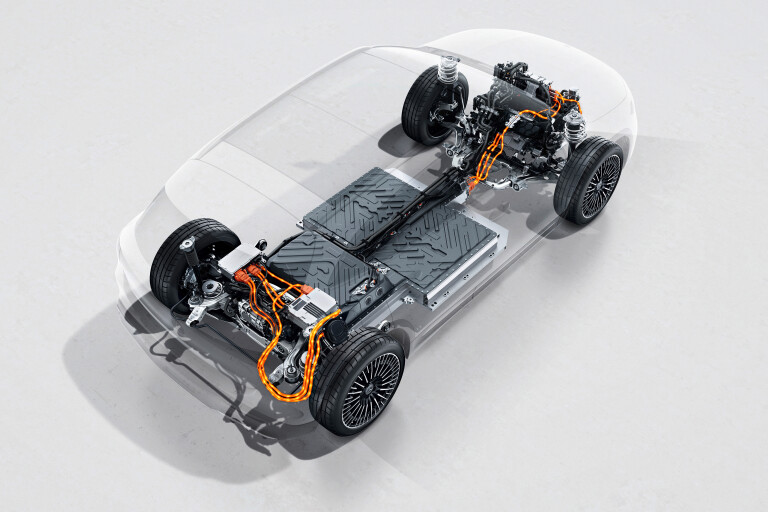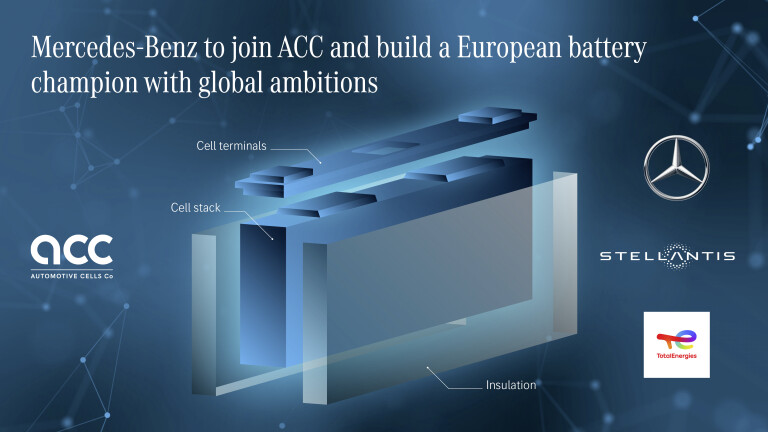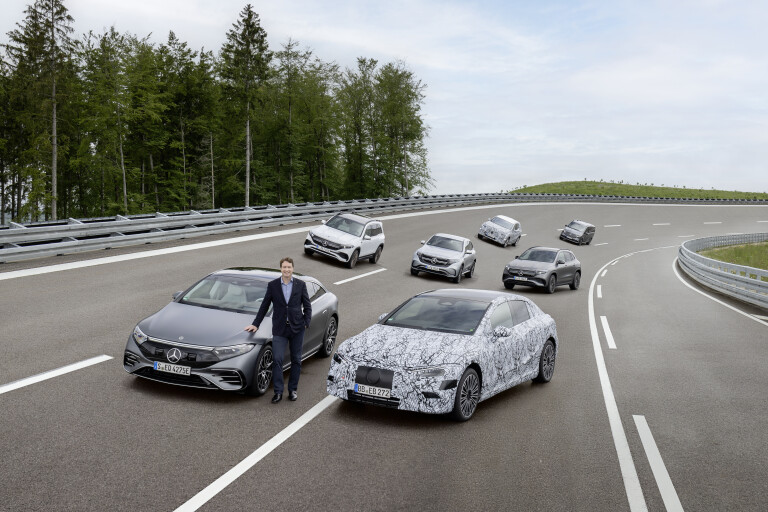
German automotive manufacturer Daimler has taken a 33 per cent stake in battery cell manufacturer Automotive Cells Company.
The parent company to Mercedes-Benz, Daimler's deal will see its electric vehicles of the future supplied with batteries from Automotive Cells Company (ACC), a business first founded by automotive conglomerate Stellantis together with oil giant TotalEnergies.
Each partner will hold a 33 per cent stake in ACC, with Mercedes-Benz benefitting from the former's batteries while providing its knowledge on technology and production.

Aiming to achieve at least 120 gigawatt hours of cell capacity by the end of the decade, CEO of Daimler AG and Mercedes-Benz AG Ola Källenius said the partnership will accelerate the company's move towards EVs.
"Mercedes-Benz pursues a very ambitious transformation plan and this investment marks a strategic milestone on our path to CO2 neutrality," said Källenius.
"Together with ACC, we will develop and efficiently produce battery cells and modules in Europe – tailor-made to the specific Mercedes-Benz requirements. This new partnership allows us to secure supply, to take advantage of economies of scale, and to provide our customers with superior battery technology.
"On top of that, we can help to ensure that Europe remains at the heart of the auto industry – even in an electric era. With Mercedes-Benz as a new partner, ACC aims to more than double capacity at its European sites to support Europe's industrial competitiveness in the design and manufacturing of battery cells.”

ACC will begin to supply Mercedes-Benz with its high-performance batteries from the middle of the decade, coinciding with the automotive company launching only electric cars from 2025.
Mercedes-Benz is one of many German manufacturers to commit to EVs, having announced it will end production of internal combustion engined vehicles for Europe by 2030, five years ahead of the European Union's target of 2035.
COMMENTS